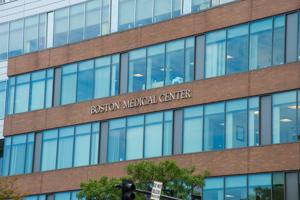BMC’s CATALYST (Center for Addiction Treatment for AdoLescent/Young adults who use SubsTances) Clinic is a medical home for adolescents and young adults ages 13 to 25 who use substances. We welcome patients in any stage of substance use, and offer compassionate, nonjudgmental, and developmentally appropriate services—including primary care, assessment and treatment of substance use disorders, harm reduction counseling and supplies, psychiatry, short-term psychotherapy, case management, and parent support.
Location and Contact
Department of Pediatrics
Monday–Friday 9 a.m. to 5 p.m.
Related Departments and Programs
Adolescent Medicine
Addiction Consult Service
Addiction Psychiatry Treatment Program
Addiction Treatment Programs
Family Planning Clinic
Pediatric Primary Care
Psychiatry (Pediatrics)
Psychiatry

Training Clinicians and the Community
Medical students, residents, and other trainees work in our clinic during their Addiction Medicine and Adolescent Medicine rotations. In addition, fellows in the Grayken Fellowship in Addiction Medicine, one of the nation’s first addiction medicine fellowships, work at CATALYST as part of their Adolescent Addiction Medicine rotation. Fellows can opt to choose CATALYST as their continuity clinic.
In addition, members of the CATALYST team provide substance use education for youth, families, and those who work with youth in community settings.

